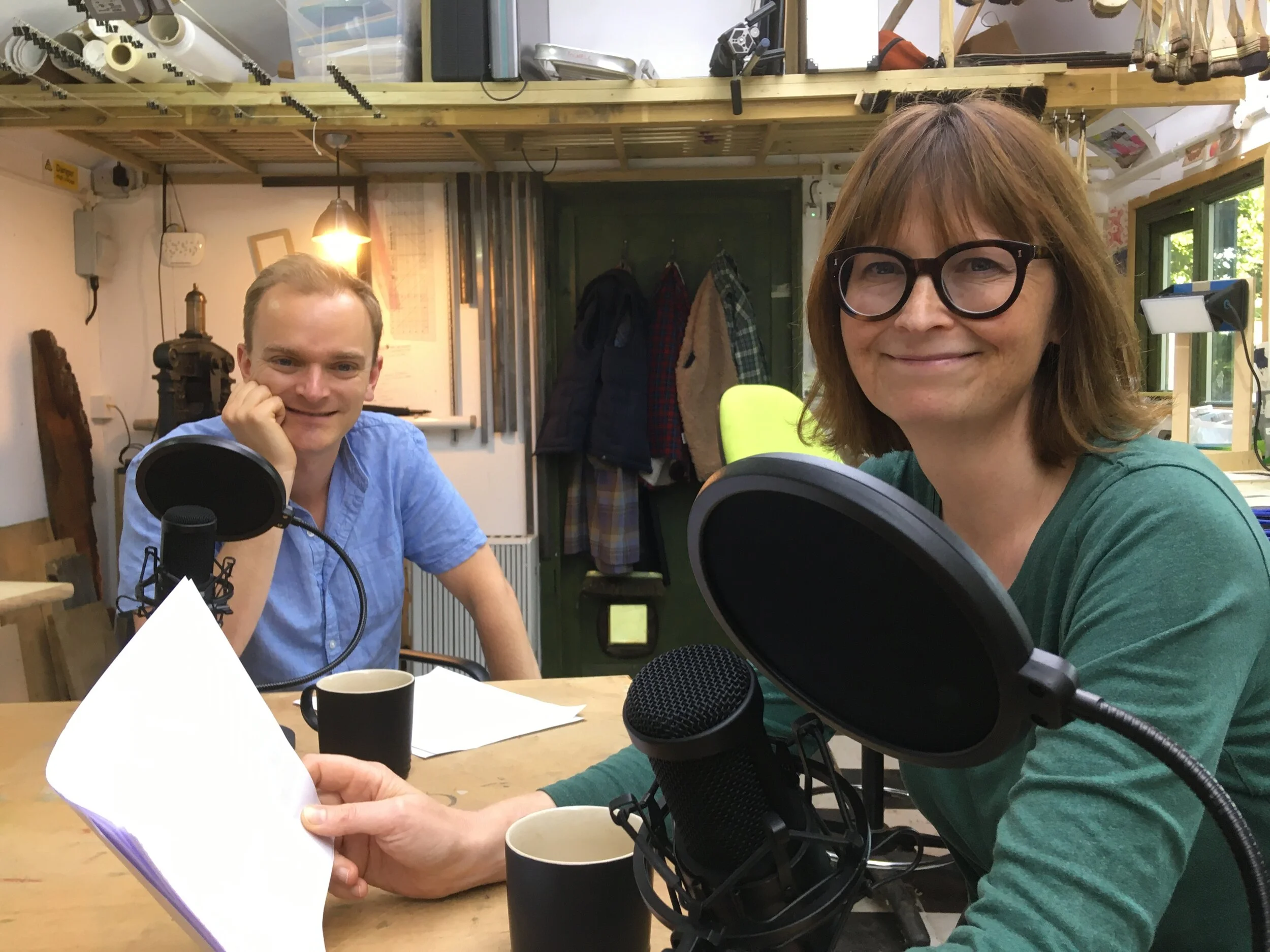Ask an Artist: Listeners Questions V
Episode 64: Listeners Questions V
Have you ever struggled to find inspiration? Have you had anxiety trying to figure out what kind of printing press to buy? Have you wandered if the degree you worked so hard to get will be respected (or if you should have gone to art school rather than making your own way into art)?
Peter and Laura answer these three very different questions, posed by listeners, in this latest podcast episode.
If you have a question that you would like to submit to us then please send them here.
The Useful Stuff
Q1: I’m good at motivating myself but then when I get into the studio, I can’t decide what to paint! How do I choose what image to depict and what I want my art to say?
· Creating a body of work, rather than facing each new canvas as a fresh venture, will give you flow and make it easier to move from one painting to the next.
· Jotting down a brief or some goals in advance will focus the mind as will setting a challenge. Using your materials in a new way, a different composition or colours can be inspirational.
· Choose a broad theme and spend time sketching and doodling, chances are you’ll hit on some element that sparks your interest and inspires you.
· Your art should reflect your authentic passion and interests. That could be a specific political or social message, or simply a theme that excites you. Your message will find you.
Q2: Can you give me any advice on buying a printing press? I am not sure about how to go about that and what I may (or may not) need. Any help would be good to hear!
· Work out exactly what you need the press do and what sized work you are likely to make over the next few years, measure your space, check the foundations are weight bearing if necessary and make sure you have a list of specifics before you start hunting.
· Good presses are an expensive investment so always inspect before buying. Never buy a press in pieces and, unless you really trust the seller or know the press, always test it before deciding.
· Ask the right people: find a relevant group or internet forum and canvass for opinions. Take your checklist of requirements to a supplier and/or manufacturer and get some straight answers as well a sales pitch.
Q3. How does having an art degree effect the value and quality of both an artist and their work? Does the ‘art world’ take having training into consideration?
· No is the simple answer! It’s perfectly OK to be self-taught and most artists develop their individuality and particular skill set through making their own work and following their passion.
· You may well benefit from or need skills training in a particular field, but that could be an informal arrangement with another artist. Artists are judged on merit, not on degree status.
· If you teach informally (where no teaching qualification is required), students may like you to have letters after your name, but it isn’t necessary and in reality, your skills will fill the classes.
· A degree does give you a period of ‘safe’ time to make art and to network, but there are plenty of less formal routes such as residencies, support grants and mentoring.
· The one exception is the weight a ‘name’ carries. Attending a top-flight art school will always help to open doors.
The Takeaway…
If you have a question you’d like to put to us and would be happy for us answer it here on the podcast please send it to us via our website at askanartistpodcast.com or alternatively you can send it to us via Instagram, Twitter or Facebook
This Podcast is sponsored by Michael Harding Colours. For more information about Michael’s colour range or to find a retailer near you, please visit www.michaelharding.co.uk




